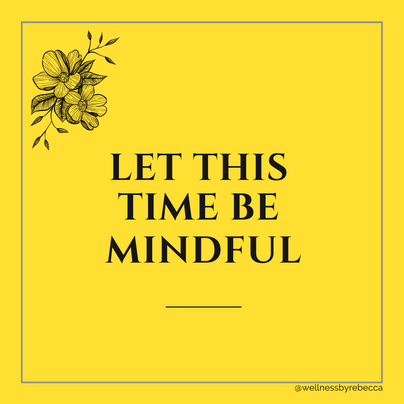Mindfulness is more than just meditation and sitting on a cushion - it’s a lifestyle, a way of living with attention and intention. There are three elements to living mindfully, intention, practice, and the attitude we bring to our practice. These are summed up in Jon Kabat-Zinn’s early definition of mindfulness;
“Paying attention in a particular way: on purpose, in the present moment, and non-judgmentally.”
Mindfulness is the quality of being present and fully engaged with whatever we’re doing at the moment - free from distraction or judgment, and aware of our thoughts and feelings without getting caught up in them. We train in this moment-to-moment awareness through meditation, allowing us to build the skill of mindfulness so that we can then apply it to everyday life.
In teaching the mind to be present, we are teaching ourselves to be and live more mindfully - in the present, taking a breath, not being reactive to thoughts and feelings. This is particularly helpful when faced with challenging circumstances or difficult situations. You learn to respond vs react.
As you become more aware of the present moment... it will keep you grounded and connected to understanding yourself & others better.
THE BENEFITS
It’s evidence-based. Both science and experience demonstrate their positive benefits for our health, happiness, work, and relationships. It brings awareness and caring into everything we do… allowing you to pause and gain perspective.
- Mindfulness helps reduce stress and anxiety by regulating and balancing your emotions, allowing you to pause and gain perspective.
- Mindfulness reduces insomnia through relaxing meditation practices that help quiet your inner dialogue.
- Mindfulness is also very effective for pain management through body scan meditations and breathing exercises.
- Mindfulness increases your focus, and attention, and can improve cognitive performance, such as problem-solving and decision-making.
- Mindfulness can help you eliminate feeling stuck in the past or anxious about the future.
- Mindfulness improves your emotional, and social intelligence and helps develop your empathy and self-compassion.
THE 9 ATTITUDES OF MINDFULNESS
Jon Kabat-Zinn describes 9 foundational attitudes of mindfulness. These can be applied to your meditation practice, but can also be applied to your life more broadly.
BEGINNERS MIND
NON-JUDGEMENT
PATIENCE
TRUST
NON-STRIVING
ACCEPTANCE
LETTING GO
GENEROSITY
GRATITUDE
No matter what methods you use, it’s important to find ways to integrate your mindfulness practice into your life that are meaningful and enjoyable to you.
If you have any questions, please don't hesitate to contact me at: info@wellnessbyrebecca.com
“Paying attention in a particular way: on purpose, in the present moment, and non-judgmentally.”
Mindfulness is the quality of being present and fully engaged with whatever we’re doing at the moment - free from distraction or judgment, and aware of our thoughts and feelings without getting caught up in them. We train in this moment-to-moment awareness through meditation, allowing us to build the skill of mindfulness so that we can then apply it to everyday life.
In teaching the mind to be present, we are teaching ourselves to be and live more mindfully - in the present, taking a breath, not being reactive to thoughts and feelings. This is particularly helpful when faced with challenging circumstances or difficult situations. You learn to respond vs react.
As you become more aware of the present moment... it will keep you grounded and connected to understanding yourself & others better.
THE BENEFITS
It’s evidence-based. Both science and experience demonstrate their positive benefits for our health, happiness, work, and relationships. It brings awareness and caring into everything we do… allowing you to pause and gain perspective.
- Mindfulness helps reduce stress and anxiety by regulating and balancing your emotions, allowing you to pause and gain perspective.
- Mindfulness reduces insomnia through relaxing meditation practices that help quiet your inner dialogue.
- Mindfulness is also very effective for pain management through body scan meditations and breathing exercises.
- Mindfulness increases your focus, and attention, and can improve cognitive performance, such as problem-solving and decision-making.
- Mindfulness can help you eliminate feeling stuck in the past or anxious about the future.
- Mindfulness improves your emotional, and social intelligence and helps develop your empathy and self-compassion.
THE 9 ATTITUDES OF MINDFULNESS
Jon Kabat-Zinn describes 9 foundational attitudes of mindfulness. These can be applied to your meditation practice, but can also be applied to your life more broadly.
BEGINNERS MIND
NON-JUDGEMENT
PATIENCE
TRUST
NON-STRIVING
ACCEPTANCE
LETTING GO
GENEROSITY
GRATITUDE
No matter what methods you use, it’s important to find ways to integrate your mindfulness practice into your life that are meaningful and enjoyable to you.
If you have any questions, please don't hesitate to contact me at: info@wellnessbyrebecca.com
